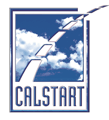California Transit Agencies Support the Low Carbon Fuel Standard
June 16, 2016
Sacramento, CA – Several transit agencies and California bus manufacturers have signed a letter indicating their strong support for the state’s Low Carbon Fuel Standard (LCFS), urging the California legislature to strengthen and continue the policy well beyond 2020. The transit leaders say the policy is providing monetary value and helping them to transition to zero emission buses that reduce greenhouse gas emissions and improve air quality.
The Low Carbon Fuel Standard (LCFS) reduces the carbon intensity of California’s transportation fuel pool by ten percent from 2010-20.
The LCFS allows fleets who use large quantities of low carbon fuels to sell credits to regulated entities that are responsible for the 10 percent reduction in carbon intensity. The typical buyers of credits generated by the program are oil companies and refiners.
Though a measure targeted at reducing greenhouse gas emissions, transit agencies say the LCFS is also helping to improve air quality. The carbon credits generated by the use of electricity as a fuel help agencies to improve the business case for electric zero emission buses. To date, almost all of the zero emission buses deployed in the state have been placed in or near disadvantaged communities.
As of mid-2016, there are over 100 zero emissions transit buses in operation throughout California. With continued support from policies like the LCFS, they could be rolled out in much larger numbers. CALSTART has set a goal of having 500 zero emission buses operating in California by 2020.
Transit agencies who signed the letter in support of the LCFS are AC Transit, Antelope Valley Transit Authority, Foothill Transit, GTrans (Gardena), Monterey-Salinas Transit, San Joaquin Regional Transit District, SunLine Transit, Tri Delta Transit, and Victor Valley Transit Authority. Endorsements from bus manufacturers and suppliers include Ballard Power Systems, BYD, Complete Coach Works, Hydrogenics, and Proterra. The letter was organized by CALSTART and the California Delivers coalition.
